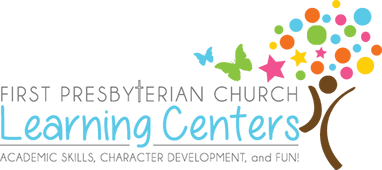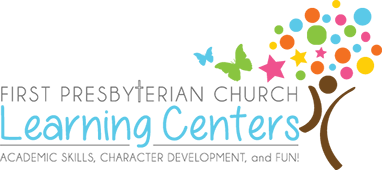Nurturing the Whole Child
Nurturing the whole child
At First Presbyterian Learning Centers in Hollywood FL, we understand that early childhood education is the most important education a child can get. During early childhood, the human brain develops rapidly. Missed learning opportunities in early childhood are hard to make up later in life. With the rapid brain development, children are growing quickly in every area, not only mentally, but also socially, emotionally, and physically. Our organized and fun learning environment allows teachers to foster each area of development so children can grow up to be successful in school and in life.
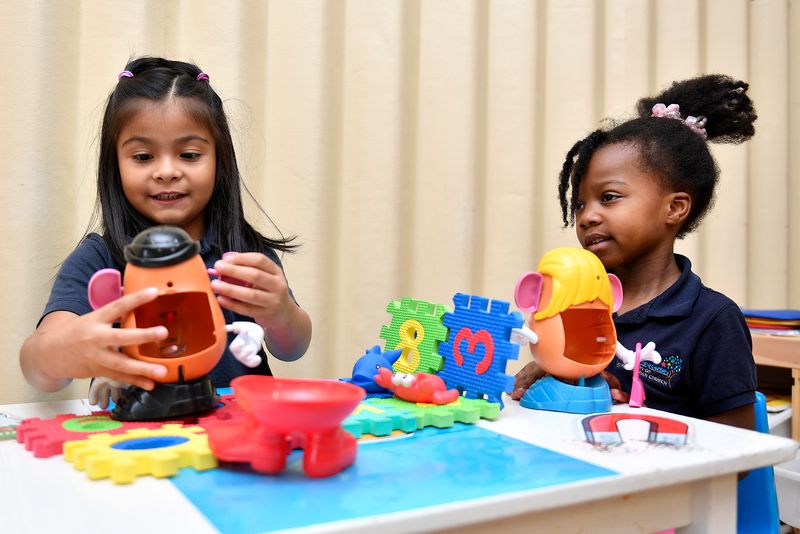
Areas of Focus
Preschoolers are special. They are learning constantly and they need to be active and challenged with new things. With increased focus on academic achievement, implementation of preschool rating systems and VPK programs, many preschools have decided on teaching academic skills only. We believe that an academics-only learning approach is misguided. In fact, child development studies have shown for decades that a more natural, play-oriented approach to learning that stimulates the imagination actually leads to greater academic success in school. By nurturing the whole child, our approach pays attention to all major areas of early childhood learning: Social & Emotional, Physical Development & Motor Skills, Cognitive Development & Thinking Skills, and Language Development. We place importance on children having healthy development and effective social skills, as well as academic accomplishments.

Social and Emotional Learning
Children who have the ability to relate successfully to others, through skills such as empathy & perspective-taking, taking turns, sharing with others, following rules and respecting others are able to develop better friendships and are less likely to be bullied when they go to elementary and middle school. Our early childhood learning approach creates experiences for children in both large and small groups, giving them many opportunities to communicate, to interact and to work and play together.
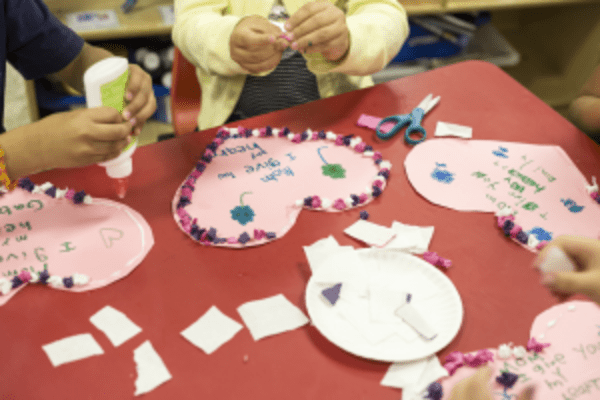
Physical Development & Motor Skills
Young children are learning to use their large muscles for walking, running, jumping, balancing, hopping and bike-riding, and their fine muscle groups for drawing, buttoning, stringing beads and writing. All of our Learning Centers’ classrooms offer a large variety of teaching tools, such as peg boards, puzzles and arts and crafts supplies that improve fine motor skills. Our campus offers many outdoor spaces, such as playgrounds with shaded areas, a large, fenced-in play field called the Pumpkin Patch (because that’s where we have our pumpkin patch in the fall), and two courtyards that allow children to run, play ball and ride tricycles.
Cognitive Development
Preschool-aged children are developing core thinking skills, such as the ability to think logically, formulate questions and solve problems. We provide teaching games that help children to practice sorting, classifying, comparing, counting and identifying patterns. In playful ways that children like, we help children learn about letters and numbers, and how to use their minds to figure things out and learn for themselves.
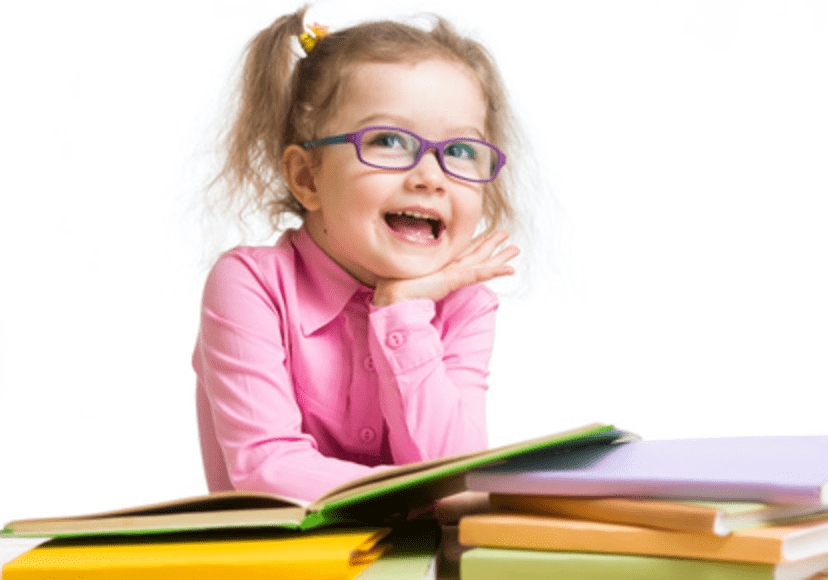
Language Acquisition and Development
Young children’s minds are primed for learning language. Language development is based on the increased use of words both in spoken or written form. It includes the understanding that words communicate meaning and that good communication means speaking with others as well as listening to others. Through planned activities and a selection of related readings from fictional and nonfictional books, our preschool children participate in “story time” two to three times a day, including children’s books written in Spanish language.
